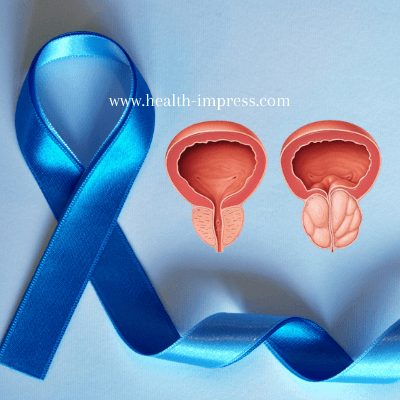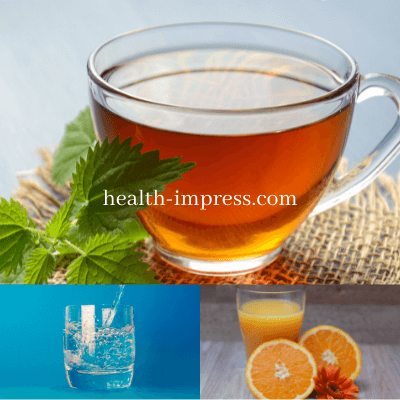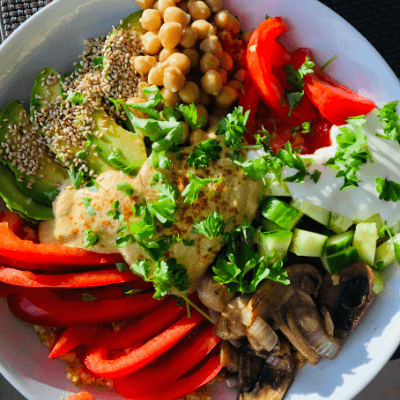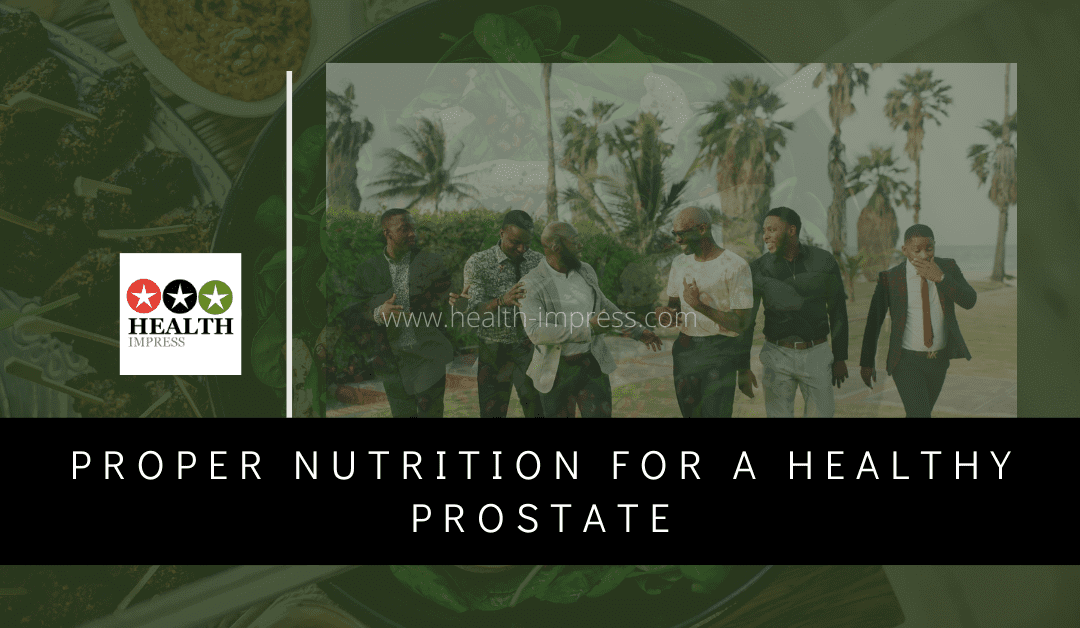Men's Health, General Health
A Proper Nutrition for a Healthy Prostate
In order to know the proper nutrition for a healthy prostate, we will start by talking a little bit about what prostate health is all about. Whilst benign prostate hyperplasia (BHP) affects 70 percent of men over the age of 60 in the United States, in Europe, 90 percent of all men over 70 develop this condition. In Asia, on the other hand, the percentage is less than 10.
Worthy of note is that BPH incidence increases significantly with age, affecting 70 percent of men over the age of 60 worldwide. Benign prostate enlargement, if left untreated can develop into prostate cancer over time.
Whenever we are sick, the obvious thing we do is try to get well again through an adapted diet, that might include a low-salt diet for complaints such as high blood pressure, or light food for stomach problems. In cases of high blood sugar, a controlled diet plan helps manage its incidence.
Some also resort to alternative medicine, some of which have been known to be very effective.
health-impress.com
It is common knowledge that a healthy diet increases the quality of life in the long term, contributes to improving the state of one’s health, and can prevent the occurrence of diseases later in life.
In the case of prostate diseases, our subject of reference, a healthy diet can prevent its incidence and positively influence the course of the disease in its sufferers.
An international comparison shows a connection between nutrition and health – depending on eating habits in different countries, certain diseases occur more or less frequently.

If you compare the eating habits in Asia with those in Europe and America, it is noticeable that fewer unhealthy fats and more fiber are consumed in Asia.
In Western countries, it is the other way round. The only exception is Southern Europe because, in the Mediterranean region, the Mediterranean diet contributes to a healthy lifestyle. Fewer men here suffer from the prostate disease than in other parts of the west.
There is no doubt that the hormonal balance of the human body can be influenced considerably by a healthy diet. However, the pathological enlargement of the prostate, as well as prostate cancer incidence, is often triggered by a shift in the male sex hormones.
What foods are good for the prostate?
Dr. Stefan Zimny, the chief physician for internal medicine, diabetology, and endocrinology, has stated that:
“a healthy diet can prevent prostate disease and positively influence the course of the disease in patients”.
The most important nutrition for a healthy prostate are:
Fiber as nutrition for a healthy prostate
A diet rich in fiber or high in fiber has an amazing supportive effect on the hormonal balance of men, and thus contributes to a healthy prostate. At least, it is recommended that 30g of fiber is incorporated into our diets every day.
High-fiber foods include whole-grain cereal products such as fruits and vegetables, whole-grain bread, whole pasta, or brown rice.
The daily requirement can be reached by having 3-4 servings (equal to 3-4 handfuls) of vegetables, and 2 servings (equal to 2 handfuls) of fruit, and 1-2 slices of wholemeal bread, plus 150-160g cooked pasta.
Note should be taken though, that if you increase your fiber intake, or consume fiber regularly, the amount of fluids you drink should be increased accordingly in order to counteract constipation.
Fats as nutrition for a healthy prostate
It is recommended that the average fat intake should be between 60 to 70 grams per day for a person. This means in those countries and communities where eating meat is a pastime, care needs to be taken, to reduce its intake. This means in regions such as Europe where the average meat intake is 100 grams or more per day, with the exception of the Mediterranean lands, care should be taken as well.
The right choice of fat also plays a decisive role here, because excessive consumption of saturated fats of animal origin, such as meat, sausage, lard, but also milk and dairy products, affect the sex hormones and can thus increase the risk of prostate cancer.
On the other hand, the intake of unsaturated fatty acids of vegetable origin such as omega-3 fatty acids and omega-6 fatty acids have a positive effect on the hormonal balance in men.
If consumed regularly, they can promote prostate health. These include, for example, nuts such as walnuts or pumpkin seeds, but also vegetable oils such as linseed oil, rapeseed oil, or walnut oil.
Secondary Plant Substances as nutrition for a healthy prostate
Secondary plant substances are mainly found in vegetables and fruits. They help protect cells and can also minimize the risk of prostate cancer in men.
It is therefore advisable, in your daily nutrition journey, to incorporate 3-4 servings (equal to 3-4 handfuls) of vegetables, and 2 servings (equal to 2 handfuls) of fruit into the diet.
In vegetables, cruciferous vegetables such as cabbage, cauliflower, and broccoli are particularly rich in phytochemicals. Pomegranate, Apricots, and melons are particularly recommended for fresh fruit.
Phytoestrogens
Phytoestrogens are part of plant foods and are similar to the body’s own estrogen. Due to their effect, there is less prostate growth when consumed by men.
Phytoestrogens are divided into two groups:
- Lignans, found in flaxseed and cereal products.
- Flavonoids, found in wine, tea, and chickpeas.
In order to reduce the percentage of men suffering from prostate cancer, a healthy diet, and a healthy lifestyle should be adhered to.
What is Proper Nutrition for a Healthy Prostate
Tips for proper nutrition
- Nutrition for a healthy prostate should be made with low fat, instead of animal fats. There should be a preference for vegetable fat with unsaturated fatty acids, such as rapeseed oil, linseed oil, and walnut.
- Incorporation of a lot of fiber in your nutrition for a healthy prostate means your dish should have lots of fruits, vegetables, and whole-grain products.
- You are also to incorporate products containing phytoestrogens, such as legumes (peas, lentils, chickpeas), soy products (tofu, soybean sprouts), or certain drinks such as tea.
- Cereals with a high proportion of phytoestrogens such as oat flakes, wheat bran, and linseed are also very good.
“A prostate-friendly” diet should be based on Asian and Mediterranean cuisine, if possible. “
What else is good for the prostate?
It is true that diet plays an important role in preventing prostate cancer, but you will agree that other factors also contribute to prostate health. This means that apart from nutrition for a healthy prostate, one has to do the following:
Movement and sport
Sport or exercise should be incorporated daily to minimize the risk of developing prostate cancer. We recommend 2.5 hours of moderate physical activity per week or 10,000 steps a day for a positive effect.
Keeping normal weight
Several studies have shown that the risk of prostate disease increases as one gains weight. This is justified on the one hand with the late detection of the disease since overweight people have an enlarged prostate.
On the other hand, explains Dr. Zimny, the adipose tissue influences the hormone metabolism, hence the need for normal weight should be aimed for and can be achieved through a healthy lifestyle.
Alcohol
Alcohol has a high energy density (many calories) and can therefore contribute to obesity.
In addition, there are countless consequential damages from high alcohol consumption. Because of this, alcohol should only be consumed in moderation. No more than two alcoholic beverages should be consumed daily.
That means a maximum of 240g alcohol; one drink = 0.33l of 5% beer or 0.14l of 12% wine. In addition, alcohol should not be consumed for at least two days a week.
Smoking
Smoking increases the risk of prostate cancer and other types of cancers. Therefore, stay away from nicotine.
Bladder training
Bladder training is recommended to strengthen the storage capacity of the bladder. Here the man tries to delay urination regularly and not to give in to the urge to urinate immediately. After urinating, you should wait a moment before trying to urinate again. This may cause the bladder to empty completely.
In order to reduce the percentage of men suffering from prostate cancer, a healthy diet and a healthy lifestyle should be adhered to.
Liquids
It is recommended to take 1.5 to 2 liters liquids during the day
In general, it is recommended to drink enough during the day. We recommend about 1.5 to 2 liters daily of low-calorie drinks such as water or unsweetened teas. The fluid intake should also be adjusted according to the circumstances. If going to the toilet is not possible or desired for a certain period of time (for example at night or on the go), it makes sense to limit the fluid intake

Drink lots of liquids 
Exercise regularly 
Secondary plant substances are mainly found in vegetables and fruits 
Unsaturated fats such as linseed and flaxseed are good for prostate health
Prostate cancer early detection and screening
Recognize the disease early
In order to reduce the percentage of men suffering from prostate cancer wherever you are in the world, a healthy diet and a healthy lifestyle should be adhered to.
We all will agree that, as it is with any disease, early detection can lead to total healing and or good management. Men, irrespective of their race or background are advised to do periodic and timely checkups to avert developing prostate cancer.
Our Prostate Recommendation
We recommend ProstaStream as an effective prostate management supplement. You can also check some of our excellent food supplements on our products page.

Takeaways
In this nutrition for a healthy prostate article, we have had a look at how proper nutrition can help curtail prostate enlargement. There are certain types of nutrition we have been advised to stick to, and others we have to be very careful consuming.
In order to be successful in your quest to fight prostate enlargement, let us practice eating proper balanced nutrition. If you already have signs of prostate enlargement, take action now by seeing your doctor.
Take care!


